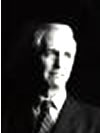Daniel Ellsberg Arrested in Crawford Protest
 (see USATODAY for more on the Crawford arrests) Ellsberg is in many ways the archetype of whistleblowers like Richard Clarke. As an analyst at the RAND Corporation he had access to classified information on the Vietnam War. What he saw disturbed him so much—the administration's early knowledge that victory was unlikely; alarming casualty forecasts; apparent disdain for the public—he decided to leak the so-called Pentagon Papers to the New York Times. Nixon was furious: To the ordinary guy, all this is a bunch of gobbledygook. But out of the gobbledygook comes a very clear thing: you can't trust the government; you can't believe what they say; and you can't rely on their judgment. And the implicit infallibility of presidents, which has been an accepted thing in America, is badly hurt by this, because it shows that people do things the president wants to do even though it's wrong, and the president can be wrong.Like President Bush (and indeed all presidents) Nixon relied heavily on the mythology of the Oval Office to govern. In his mind it had been shattered; the administration came at the Times and Daniel Ellsburg on a number of fronts. The most famous effort was G. Gordon Liddy and E. Howard Hunt's break-in at the offices of Ellsberg's psychiatrist. The goal was to find documents that could be used to discredit the man, not his argument—a method currently favored by many throughout the political spectrum. The context in which all this played out is eerily similar to the situation today. Daniel Ellsberg is a powerful symbol of what can happen when there's a breach of faith between an administration and the people it governs. Hopefully his arrest won't go unnoticed by the mainstream editorials— it's a powerful opportunity to learn from the past. |


Comments on "Daniel Ellsberg Arrested in Crawford Protest"
post a comment